It is not unusual for several organs to work together to carry out a specific function within the body. Going back to the processing of our breakfast toast, organs such as the salivary glands, the digestive tract, the liver, and the pancreas were all involved in its digestion, so collectively these are referred to as the digestive system. It is usual to name the following main organ systems in the body: |
 | digestive system - the digestive tract and accessory organs such as the salivary glands, the liver, and pancreas. Their main role is to digest the food we eat and absorb the nutrients |
| 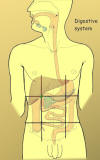 |

|
 | urinary system - kidneys, ureters, urinary bladder, and urethra, for removal of waste products and maintenance of fluid balance |
| 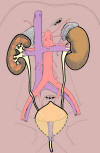
|

|
 | cardiovascular system - heart and blood vessels, to maintain supply of vital materials to cells and removal of waste products |
| 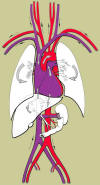
|

|
 | lymphatic system - vessels, nodes, and lymphoid tissue that assist the circulation and have close links with the immune system |
| 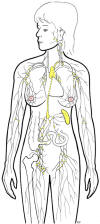 |

|
 | integumentary system - skin, nails, hair, glands, to protect outer boundary of body and receive sensory information |
| 
|

|
 | skeletal system - bones, joints, cartilage, to provide framework for body and protect internal organs |
| 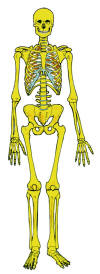
|

|
 | muscular system - muscles producing movement and heat |
|  |

|
 | nervous system - brain, spinal cord, and nerves, to control the body, react to situations, remember, and think |
| 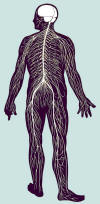
|

|
 | endocrine system - control of bodily activities by way of chemical signals called hormones that travel in the blood stream |
| 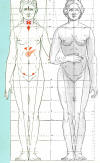 |

|
 | immune system - protection against infection and cancer |
| 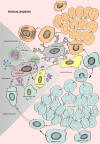
|

|
 | respiratory system - airways and lungs, to enable gas exchange so that cells receive the oxygen they need and can dispose of unwanted carbon dioxide |
| 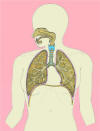
|

|
 | reproductive system - reproductive organs of female and male, contributing to the next generation |
| 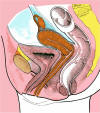
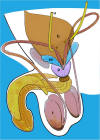
|

|
